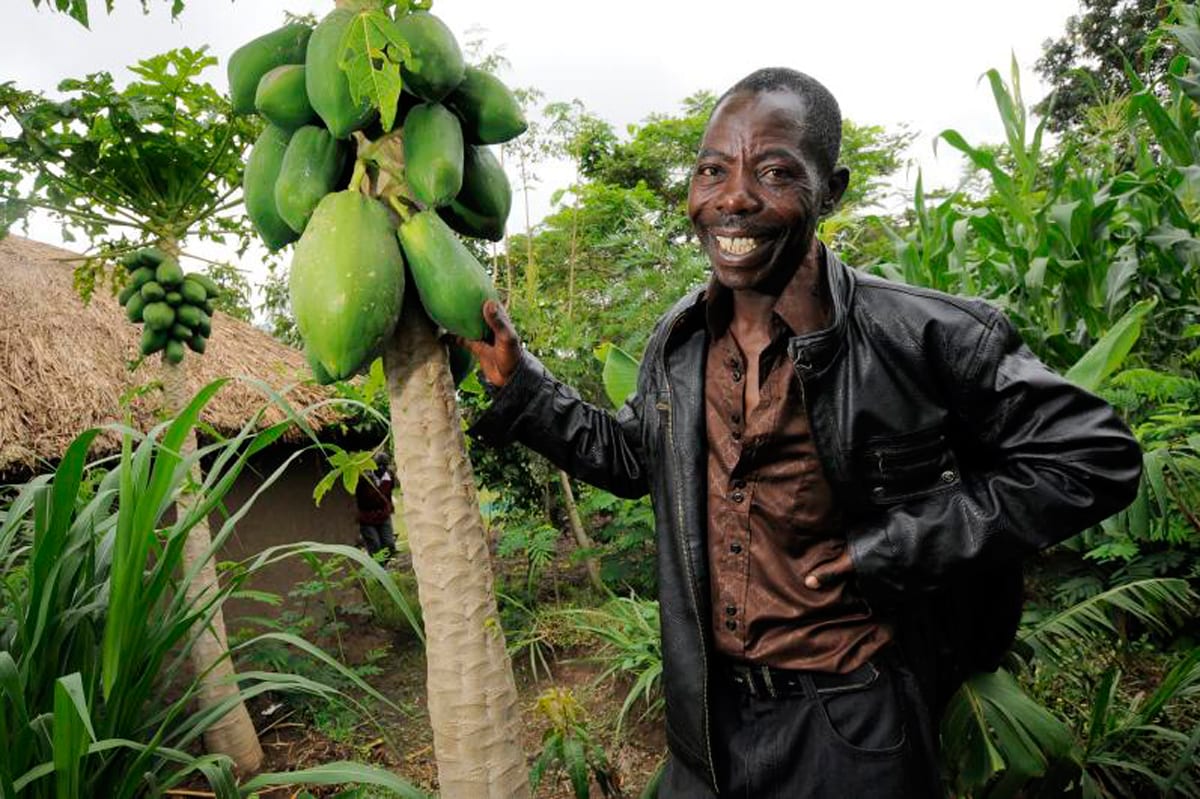Food and Farming at the Heart of Climate Discussion
By Michelle Geis Wallace, January 27, 2012

This smallholder farmer in Kenya practices agroforestry, allowing him to produce more food in less space.
Last week, a group of 14 international agriculture experts from around the world wrote an opinion piece in Science magazine urging the scientific community to address the importance of agriculture in the climate change debate. The authors, many of them serving as part of the Commission on Sustainable Agriculture and Climate Change (a Burness client), and led by UK’s Chief Scientific Adviser Sir John Beddington, say there was incremental progress on the issue at this year’s climate discussions in Durban. But they say the agreement does not go far enough.
So why are negotiators reluctant to address an issue as vital as feeding the world? Part of the answer is that agriculture is both a victim and a cause of climate change. Many farmers, particularly those in developing countries, are suffering because they don’t have the tools (irrigation, drought-resistant varieties, etc.) to grow their crops in harsher conditions. At the same time, the Food and Agriculture Organization of the United Nations estimates that food production will have to increase by 70% to feed a population of 9 billion by 2050. With agricultural activities responsible for a large portion of human-generated emissions, scientists are calling for a radical change in the way we approach farming at the global level. They favor an approach that reduces emissions from agriculture while boosting farmers’ ability to supply vital crops. But with growing conditions-and therefore solutions- varying greatly across countries and regions, there is no “one size fits all” solution.
“Farming’s Climate Smart Future,” was released at COP17 by the CGIAR Research Program on Climate Change Agriculture and Food Security (CCAFS is a Burness client) and the Technical Centre for Agricultural and Rural Cooperation (CTA is a Burness client). The book highlights some of the ways farmers around the world have adopted practices that increase production while reducing agriculture’s climate footprint. And while these case studies provide hope for large-scale impact, experts acknowledge that major transformational shifts are needed to make a difference.
“Urgent action is needed, within and outside of the UNFCCC, to address the threat of climate change to agriculture and food security,” said Molly Jahn, an author of the Science article, a distinguished researcher and professor at the University of Wisconsin-Madison, and a member of the Commission.
What’s next?
As the New York Times noted in a blog post, the authors want agriculture to become a formal part of the treaty negotiations in hopes of setting climate change goals and securing financial help for developing countries to help them meet those goals.
“The Science piece calls for intermediate steps from the scientific community that could help lay the groundwork for such a program,” the Times blog says. “The suggestions include development of new agricultural standards, a more direct linkage between saving forests and improving agriculture, and more rigorous assessment of which farming practices are truly ‘sustainable.’”
More media coverage of the Science policy piece can be found here:
